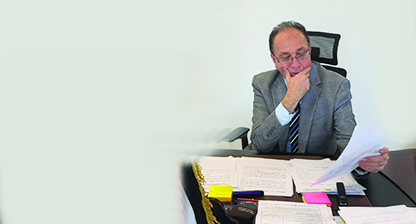Germany’s new Consul General in Lagos, Daniel Krull, says his mission is to strengthen trade, cultural exchange, and technological cooperation between both countries. Krull, who until recently served as Germany’s Ambassador to Ghana, said in this interview with NGOZI EGENUKA that Nigeria’s creative and tech sectors hold immense potential for partnership. He also spoke on efforts to improve visa services, support small and medium-sized enterprises, and promote accountable governance as a pillar of sustainable democracy.
How do you view the current state of Germany–Nigeria relations, particularly in trade and cultural exchange?
I am from Hamburg, a big port city in the North of Germany. It is the biggest port in Germany and the third biggest in Europe. So, trade has always been very close to my heart. My father is a sea captain. He spent a lot of time waiting in the Bay of Guinea to get access to the port of Lagos. So, I know about the long history of trade between the countries. I mean, if you walk in the streets of Lagos, you see all the Volkswagen buses running. So you can imagine that there were more dynamic days than today. But I think important structural reforms have been stipulated, and an important tax reform is on the horizon. So, I strongly believe that there is a high potential for future growth in German-Nigerian trade.
What are your key priorities as the new Consul General of Germany in Lagos?
First of all, we have to facilitate businesses from Germany and Nigeria to get in contact, which relates to visas. So, we have to speed up and improve, but that’s very challenging given the creative energy in Lagos. However, we will manage to beef up our capacity and hopefully we’ll be better.
So, when it comes to business relations, I will certainly focus on basically two areas. That is to facilitate links between creative industries in my home country and Lagos, the epicentre of Nollywood. We are expecting a delegation of CEOs from companies in that sector in November. Secondly, I really want to explore the potential of Lagos and Southern Nigeria as a talent pool for IT professionals. The whole world is keen to have IT talents.
I was in Ghana and in the Mathematical Institute, where the best graduates are always from Nigeria. So, there must be huge potential in this country. And I want to help German companies that are also training IT talents in other African countries to come here and have a look at Ghana and Nigeria, and hopefully open opportunities for young IT talents from Nigeria. The beauty of it is that they can live in their country, be with their friends and still participate in the world labour market.
Are there any key initiatives that the consulate is doing to support trade between German investors and Nigeria?
We are currently on the brink of launching a new programme for small and medium-sized Nigerian companies that are interested and in need of high-end German machine tools. We are setting up a scheme where these companies get better access to finance capital with a local bank supported by German funds.
Nigeria is a great consumer of educational exchanges, so how can citizens benefit from available relations in this sector?
Well, I think my most important message is to be aware of where you want to do your education in Germany. There are, unfortunately, quite a few institutions that offer so-called university services. And they charge an outrageous amount of money, which you pay almost as much as you pay at a United States university. At the same time, we still have free university education. So, if you can apply to a public German university, the cost you have to cover is the cost of living and lodging. So, the amount to study and for administrative fees is minimal. Therefore, I would really encourage my Nigerian young friends to look very, very carefully with whom they are dealing.
What step is Germany taking to improve visa service for Nigerians?
We are proud that we will finally upgrade our facilities. We will double the number of counters where people can apply and have their interviews. We have upgraded the back-office capacity, and we will also include a service provider for certain categories of visas. We will also transfer certain decision-making from Lagos directly to Germany, which will hopefully improve our capacity and reduce the waiting time.
What lessons can Nigeria learn from Germany to improve good governance and promote stability?
I think the most important thing is that people hold their leaders accountable. That is key to democracy. Without that, democracy might turn against you and might not serve your best interests. So, it’s about the civil society holding its leaders accountable. That’s the main principle. And that’s true also for Germany. But that would be my strongest recommendation.






